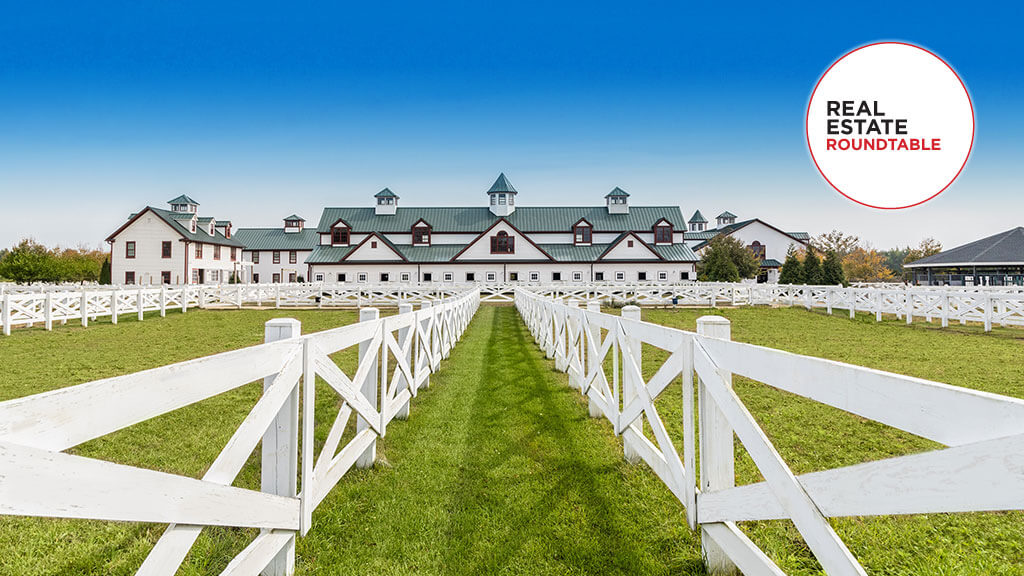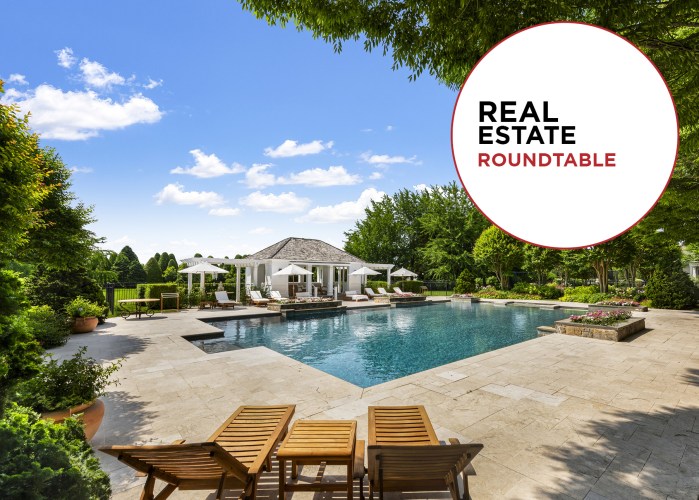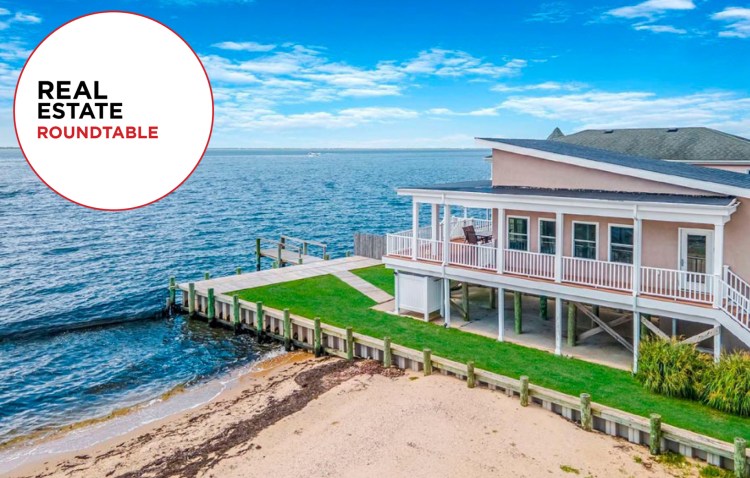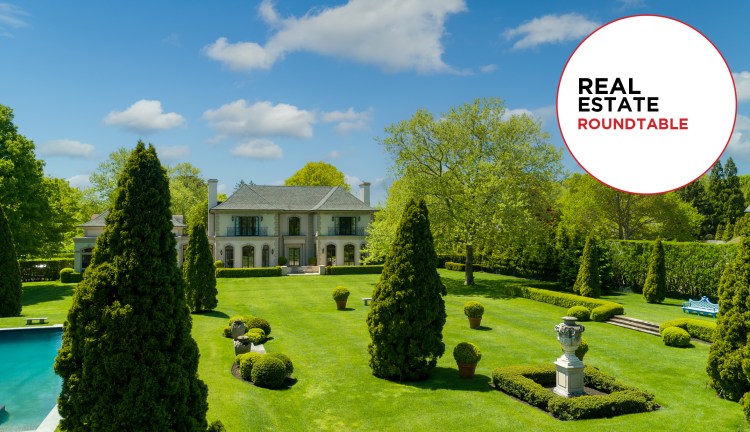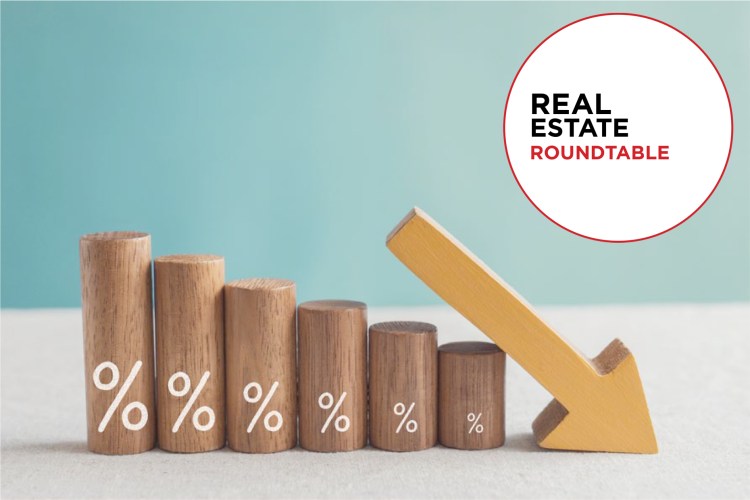The East End offers the ideal locale for equestrian sports. There’s a plethora of wealth and plenty of pastoral land, and we have the Hampton Classic Horse Show. One of the country’s largest outdoor equine competitions, the Classic completes the summer show circuit before riders and their mounts head to Wellington, FL, the winter riding capital. We asked these top agents how equestrian sports drive the real estate market these days.
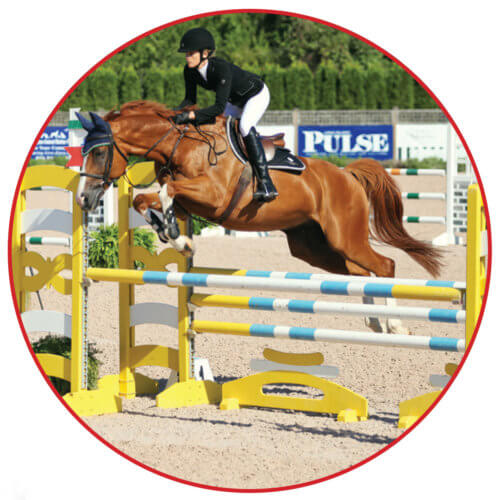
Marilyn Clark
Sotheby’s International Realty
“In my view, riding and owning horses is the pinnacle of luxury, so being part of the Hamptons equestrian world is as good as it gets. A healthy segment of our real estate market centers around equestrian sports. From the celebrities who create fabulous horse estates, to those who buy spectacular existing stables — sometimes for their children to ride (like Campbell Stables in Bridgehampton, recently sold, last ask $19.995 million), to polo players who buy large tracts of open space to house their horses and hold their matches. The ripple effect from the rarified horse world benefits even those who are not involved in the sport. Homeowners benefit each year by renting their houses during the Hampton Classic to accommodate the huge influx of people associated with that world class event. There are also those who seek properties adjacent to horse farms that command premium prices in our market. People come to enjoy The Hampton Classic, fall in love with the magic and decide they want to rent or buy here. They enroll their children in pony camps or take lessons themselves. For the horse minded it’s not just about the sport but the lifestyle destination that the Hamptons offers.”
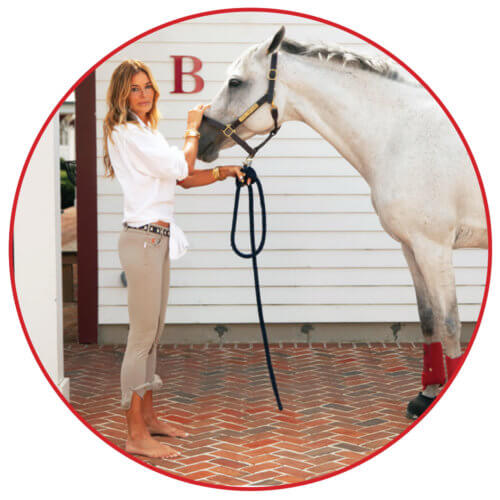
Kelly Killoren Bensimon
Douglas Elliman Real Estate
“Equestrian sports and the demographic of those that compete, work, and ride are moving the real estate market in terms of migration and centralization. Buyers that are passionate about the equestrian lifestyle and sport will go where there is opportunity and they have migrated to create their oasis in the markets that have the most to offer. High-net-worth individuals are taking their beloved family, friends, passions and belongings with them. While there is uncertainty in the world relative to freedom, one place you can indulge with friends and families is at home. That is the driver and we are seeing an upcycling because of this. It’s a less distributed network of homes and a focus on dream homes where family and friends can create memories either by owning their own barns on a farm, keeping their horses on their own properties, or in close proximity to where they can compete and/or ride for their own passion at a local barn.”
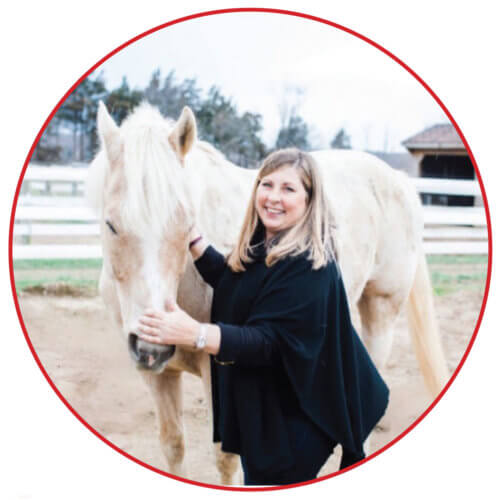
Gina Leslie
NOFO Real Estate
“As an East End agent who grew up riding and competing on Long Island and eventually owning and operating a horse farm, I am confidently knowledgeable on the subject. As real estate prices soar and inventory remains low, it has been a difficult find for the small gentlemen farm client. The 5-10 acre farm with barn and riding ring has been a needle in the haystack for under $2.5 million. Also, with the population increasing and farmland decreasing, it is getting more difficult to find horse-friendly neighborhoods. When finding the right equestrian property there is a large checklist. First and foremost, finding a farm friendly neighborhood, and will it allow riding rings? Accessory buildings? Zoning? Labor housing? Easy access for supplies? Fencing restrictions? It is important to use an agent that specializes in agricultural land who can find the right situation for your four legged friends.”
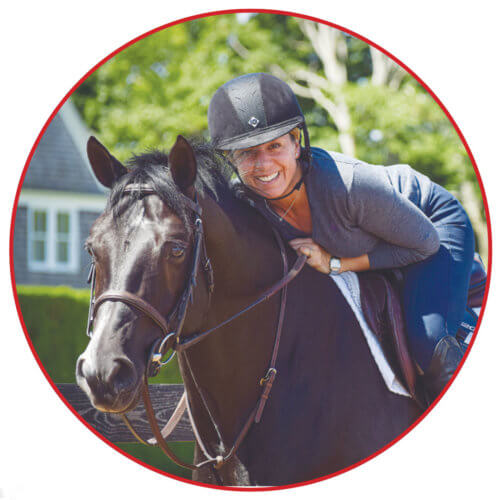
Dana Trotter
Sotheby’s International Realty
“In general, the equestrian circle represents a demographic with a significant number of ultra-high-net-worth individuals that move seasonally following the competition circuit from the Hudson Valley and the Hamptons in the summer and down to Wellington in the winter. Though small in number, this exclusive segment has significant purchasing power and holdings of trophy properties and horse farms in multiple locales. High-end sales were a key driver of the real estate market around the country, especially in less populated luxury home areas near major cities, such as the Hamptons and Marin County, just outside San Francisco. What brings equestrians to the East End is that there is something for the whole family here. While the equestrians ride, there’s plenty of action to keep the rest of the family busy including world class golf courses, luxury tennis clubs, fishing and boating opportunities, and some of the best beaches in the country. Choose from a variety of beautiful horse farms or low-key gentleman farms to stable your steeds and hone your craft with top-notch training for hunters and jumpers. We also have an established polo scene on the East End that attracts some of the top high goal players and makes for a great outing for spectators.”
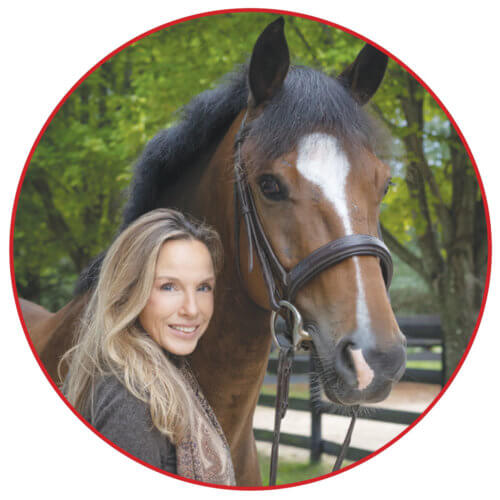
Donielle Cardinale McKinnon
Daniel Gale Sotheby’s International Realty
“The past two years have made all of us think about quality of life and what is most important to us. As a result, people are rethinking their priorities, and even their home/properties in many cases. For those of us who truly love our horses, we consider them part of our family. Therefore, as people are focusing more on family, for horse people, this means making more room in our lives for our four legged family members. Some have moved to a home that is more accessible to a farm where the horse can be boarded, or even buying a farm of our own. I have sold more land in 2020 and 2021 than ever before. Even my own family purchased a family compound that absolutely had to include land and stables for our horses to have a top notch training environment.”
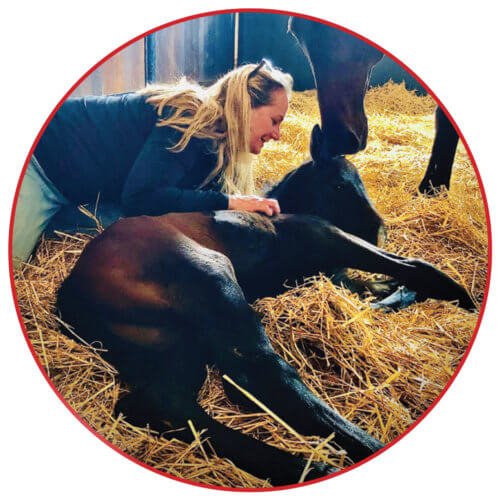
Jane Babcook
Brown Harris Stevens
“For decades, the Hamptons has been a host to the crème de la crème of equestrian sports, from polo to show jumping. This is what brought me here in 1989, managing Joe Fargis’ string headed for the 1990 World Championships in Stockholm. Behind a great horse and rider team is a slew of supporters. Top Grand Prix horses are worth millions of dollars today and many of those backers own real estate here in the Hamptons, with an increasing number of private equestrian estates. Folks such as my sister and brother-in-law are investing in very young horses and methodically bringing them along. The Hampton Classic plays a vital role for many of these sponsors, bringing national attention to an event essentially in their own backyard.”
This article appeared in the Labor Day issue of Behind The Hedges magazine. Read the digital edition here.

